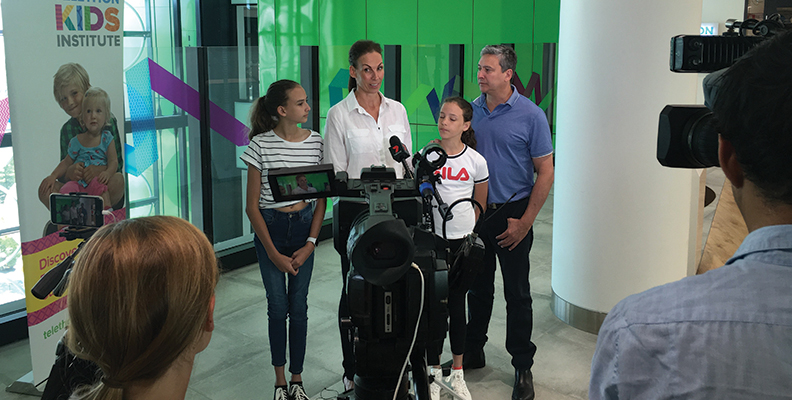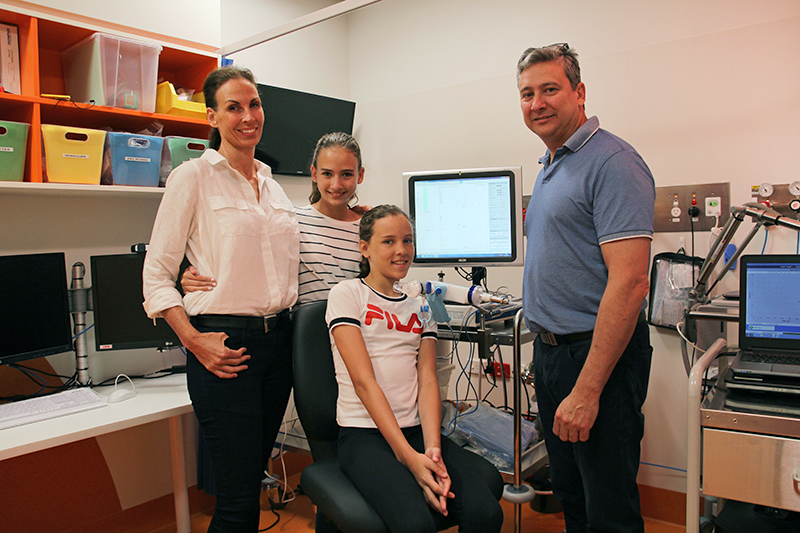Search
Showing results for "early life"
Research
Severity Assessment in CDKL5 Deficiency DisorderA severity assessment was rapidly developed with input from multiple stakeholders. Refinement through ongoing validation is required for future clinical trials.

News & Events
New drug therapy provides hope for kids with cystic fibrosisThe Kids Research Institute Australia spin-off company, Respirion, received $20 million in funding to develop a promising new therapy.

News & Events
New drug therapy provides hope for kids with cystic fibrosisThe family of two girls with cystic fibrosis are hopeful after The Kids Research Institute Australia spin-off company, Respirion, receives $20 million in funding to develop a promising new therapy.
Research
Resting Energy Expenditure and Metabolic Features in Children With Septo-Optic DysplasiaSepto-optic dysplasia (SOD) is a major cause of congenital hypopituitarism and is known to be associated with overweight and obesity in up to 44% of children. Given the role of the hypothalamus in hormonal regulation, we sought to assess the association of resting energy expenditure (REE), appetite and physical activity with SOD.

The Aboriginal Health and Wellbeing Team follows an holistic definition of Aboriginal Health which means that health is not just the physical wellbeing of an individual but includes the social, emotional and cultural wellbeing of the whole community.
Research
Food AllergyFood allergies have become more common in our community, with up to one in ten young children now affected. Reactions can range from mild hives to life threatening anaphylaxis and breathing difficulties. The most common food allergies are to egg, peanut, tree nuts, cow’s milk, fish, shellfish, sesame, wheat and soy.
Research
It takes a village: Influencing policy and practice to prevent alcohol use in pregnancy and promote better outcomes for individuals living with Fetal Alcohol Spectrum DisorderFetal Alcohol Spectrum Disorder is a neurodevelopmental disorder caused by exposure to alcohol in utero. It has pervasive, lifelong impacts and is recognised as a major public health concern in many countries where alcohol is used. The FASD Research Australia Centre of Research Excellence was funded by the National Health and Medical Research Council to generate and translate evidence to address prevention, diagnosis, and management of FASD in Australia.
Research
Vitamin D 3 deficiency enhances allergen-induced lymphocyte responses in a mouse model of allergic airway diseaseIn this study, using a mouse model, we determined whether vitamin D deficiency in utero and during early life modulated the severity of asthma.
Research
The Brain Basis of Comorbidity in Neurodevelopmental DisordersThis review discusses early brain development and the etiological factors that may give rise to atypical developmental trajectories, along with neuroimaging insights
Research
Transition to adulthood for young people with intellectual disability: the experiences of their familiesA number of themes emerged from the qualitative data which included parents' views and concerns about the capacity of their young adult to adapt and change to life in adulthood
